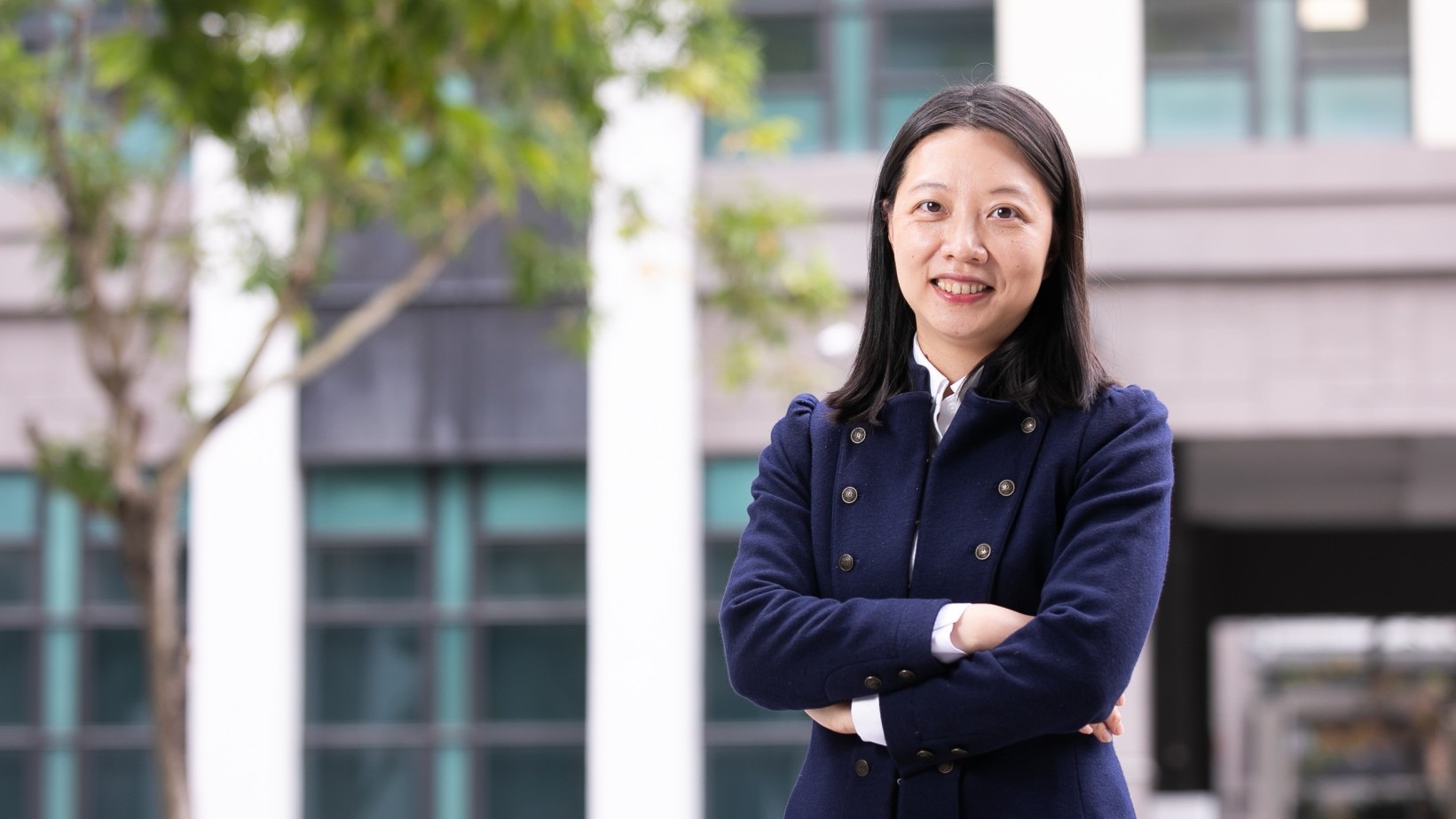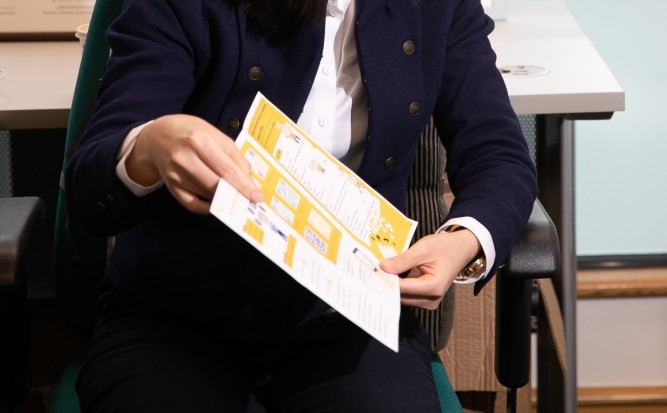Lingnan psychologist Prof Li Lin: sensible ways to relieve stress including humour

Prof Li Lin, Assistant Professor of Lingnan University’s School of Graduate Studies and Department of Psychology, aims to enhance students’ interest in the relevant aspects of psychology by encouraging them to apply their knowledge.
"Everyone encounters difficulties," says Prof Li Lin, Assistant Professor of Lingnan University’s School of Graduate Studies and Department of Psychology.
The outstanding developmental psychologist acknowledges that she also experiences stress and occasionally feels uncertain about textbook knowledge while caring for her nearly two-year-old son. Her valuable advice to those feeling swamped is to "reach out for social support from family, friends, or even online communities. Sharing your burdens and seeking assistance can be incredibly beneficial. If you feel overwhelmed, consider seeking professional help. Lingnan offers a wide range of counselling services for students, so there’s no need to feel embarrassed or ashamed."
When facing stress, Prof Lin not only seeks social support but also enjoys watching stand-up comedy videos. She says, “I believe stand-up comedians are exceptional ‘psychologists,’ with unique insights into human behavior and nature. Through self-deprecating humour, they skillfully confront life's hardships."
Prof Lin's keen sensitivity to human behaviour goes back to her high-school years, when she observed how her peers dealt with academic pressures, ranging from emotional breakdowns to displays of optimism and remarkable resilience. This inspired her to study psychology in university and explore people’s individual differences.
Since obtaining her doctoral degree, Prof Lin has dedicated her research effort to the study of adolescent development, positive psychology, and leadership among university students. One notable project explored the developmental changes in pursuing pleasure and/or growth during early adolescence - a study recognised by grants from the Research Grants Council and the Lingnan University Research and Knowledge Transfer Fund Award in 2022.
Pleasure-seeking and personal growth
"The pursuit of pleasure and personal growth fall under the realms of self-care and self-cultivation respectively," explains Prof Lin. "Both contribute to our well-being and need to go hand in hand. Pleasure-seeking activities like enjoying food, watching TV, or playing video games can provide instant relaxation and enjoyment, but such pleasure is usually temporal. If one heavily relies on such pleasure, they will find themselves caught in an endless cycle and may feel upset when that pleasure fades away. On the other hand, personal growth involves putting effort into self-improvement, which may sometimes bring about tiredness or negative emotions. However, achieving our goals in this process can bring a sense of accomplishment and long-lasting happiness.” According to her perspective, how to reach a balance between these two approaches is a personal choice, but it is crucial to understand the outcomes that result from each approach.
"After completing secondary education, freshmen may experience a period of adaptation when they enter university, and navigate the search process for their next significant life goal. Seniors, on the other hand, may face decisions regarding further education or employment, leading to increased stress and anxiety. Interpersonal relationships and romantic issues are also common challenges for university students.”
To decompress, Prof Lin suggests finding appropriate ways to relax. These may include activities like hanging out with friends, reading, playing games, or practising yoga. However, unhealthy coping mechanisms like alcoholism are discouraged.
Sense of meaning
"A person's sense of meaning plays a vital role in promoting positive emotions and healthy behaviours, reducing the likelihood of resorting to negative coping mechanisms during setbacks." Prof Lin draws on her extensive experience as well as research conducted by fellow scholars.
“By looking inward, we can more easily discover lasting meaning. Some may question the purpose of studying, such as earning money - let's think about what that money is for. To take our parents on a trip or to explore the world? If our sense of meaning relies solely on external factors, like seeking admiration, it will leave us in instability. However, if our meaning comes from inside, our state of being will be more stable."

A dementia pamphlet designed by Lingnan students.
Development of psychology in the digital age
In the digital era, Prof Lin believes that psychology should evolve by integrating technology to expand research horizons. She highlights the role psychology can play in helping individuals understand online behaviour and discover its positive aspects since people spend nearly 24 hours a day on the Internet nowadays.
Prof Lin acknowledges that psychologists are actively exploring digital technology to enhance research methods. Some use augmented reality to create experimental scenarios. "Personally, I try using apps to record participants' daily emotions or behaviours, collecting more precise data."
Through her teaching, Prof Lin aims to enhance students’ interest in the relevant aspects of psychology by encouraging them to apply their knowledge. “In the course ‘Positive Gerontology’, for example, I invite students to make pamphlets that share knowledge of positive ageing, such as knowledge about behavioural and psychological symptoms of dementia and its coping strategies. Our ultimate objective is to bring benefits for the seniors and caregivers in the community," she says, and in her research, she strives to transform the findings into practical applications that can benefit the wider public, aligning with Lingnan's motto of "Education for Service".


